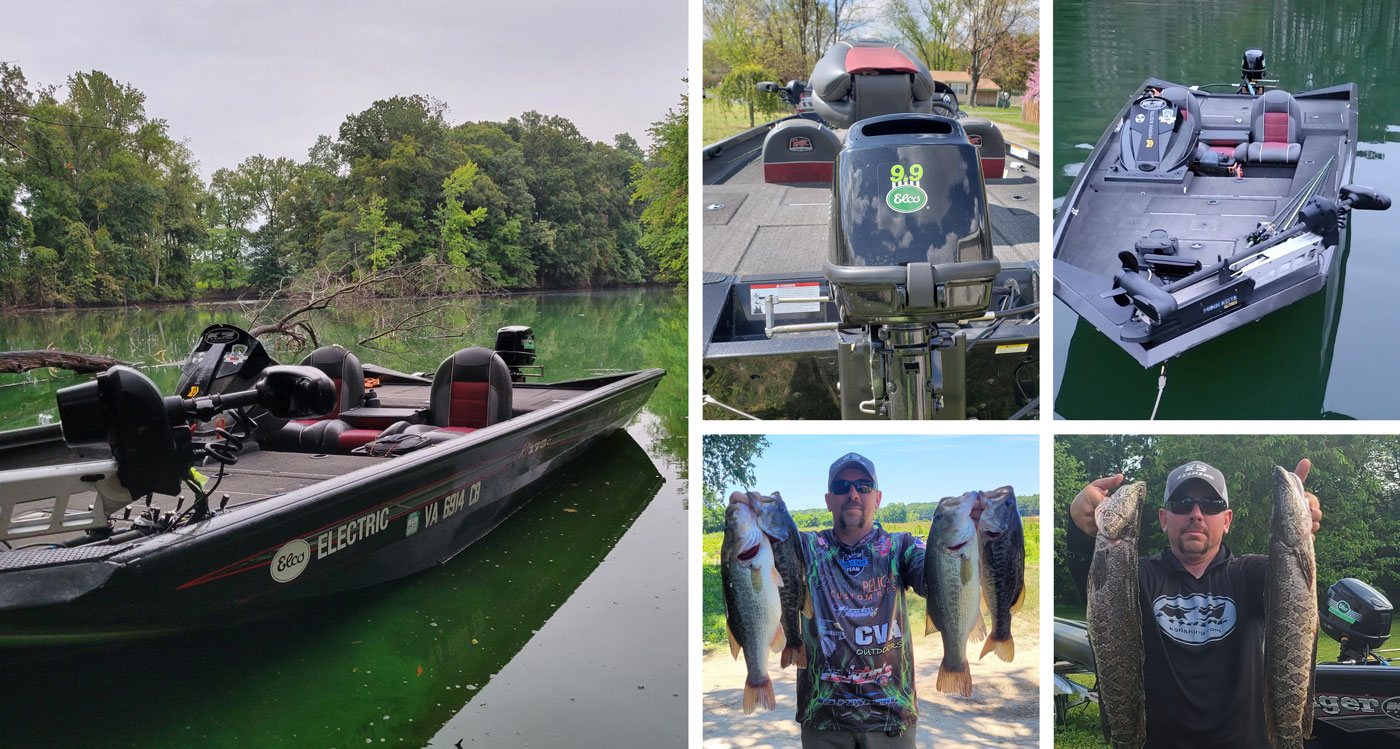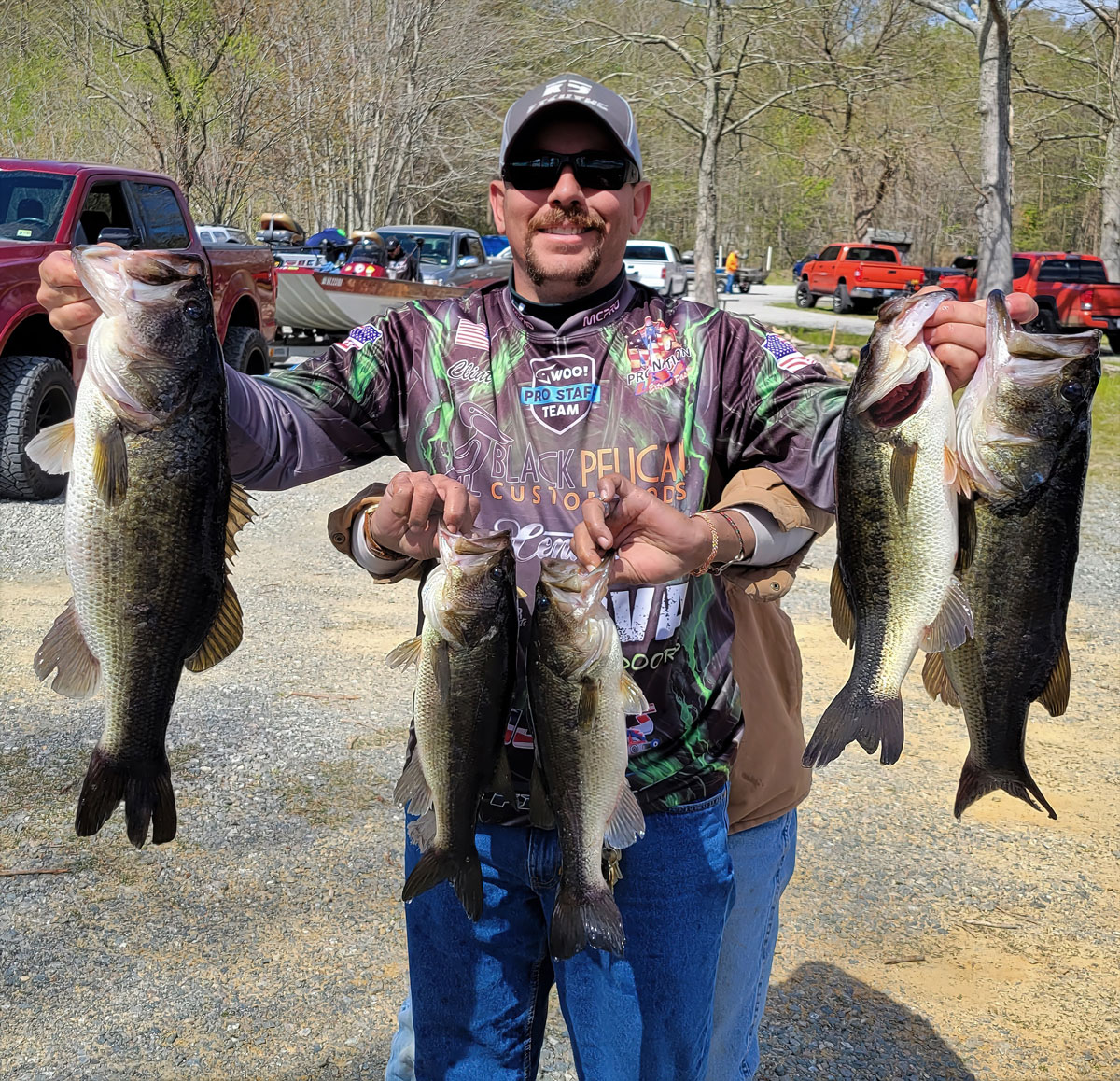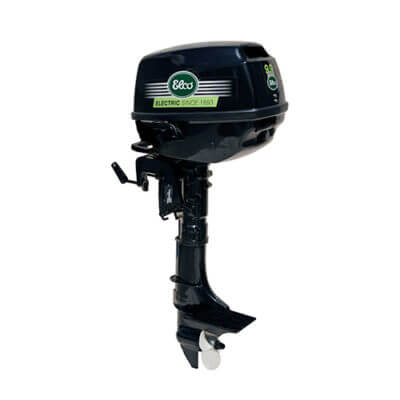
Gearing up for the Electric Boat Bass Circuit
How Clint Outlaw dominates tournaments with electric motors
“Fishing in electric-only bass tournaments requires many of the same skills and is just as competitive as gas tournaments, but without all the stresses associated with the run and gun approach.” – Clint Outlaw.
I’ve been fishing with my dad, Ron, for as long as I can remember. As I got older, I moved on from bluegill and started getting serious about bass fishing. By the time I turned 18, I joined a bass club and got involved in tournament fishing while also fishing on other people’s boats.
My first boat
To start tournament fishing, I purchased a 16-foot aluminum bass boat with a 50-horsepower gas motor. Sounds like every fishing enthusiast’s dream, right?
Unfortunately, the excitement was short-lived, as I soon realized that my life was in grave danger every time I put that boat in big water.
Since I couldn’t afford a state-of-the-art bass rig with a 250 on it, I figured tournament fishing was over for me.
Luckily, I met a guy at an electric-only lake who asked if I did any tournament fishing. I explained my situation and he invited me to his electric-only bass club.
After just one outing, I was HOOKED.
Just like that, I removed and sold my gas motor and installed two extra electric trolling motors. For main power, I originally had a 48-volt, transom-mount, minimal horsepower drive. On top of it not being enough power to push my boat, this setup caused me nothing but problems. I must have replaced or rebuilt everything at least twice, not to mention the issues I had with the shaft bending whenever it bumped into something.
Fast forward to 2017: Building the ultimate E-boat
In 2017, I bought my first new boat with the mission of putting together the ultimate E-rig. That weekend, I went to my local Ranger dealer to get started.
However, I was quickly let down when they refused to sell me a boat without a gas engine.
But I was determined. I stewed about it all day at work and called the Ranger factory to explain what I wanted to do. Luckily, they told me they would take care of it and 12 weeks later, my new aluminum Ranger RT178 arrived.
For main power: I did extensive research, reviewing all companies that offer electric outboards. Then, I came across Elco and discovered they had been around since 1893, had an excellent reputation for reliability, and were from the USA.
Without hesitation, I ordered the 9.9 hp model.

Here in Virginia, there are many electric-only lakes to fish on. One of the best is a private 135-acre lake that’s only about eight minutes from my house.
With my electric boat, I can fish a lot of lakes others can’t. My rig is so light that if I can fit my trailer between two trees to get to the water, I can fish it.
Some of the best electric-only fishing spots where we fish on the 10-event Out-Cast Club circuit are Dyson and Mill Creek reservoirs, Beaver Dam and Lake Moody.
It’s a different vibe…
It’s also nice to be out on a lake without having to worry about getting run over by a maniac screaming down a creek at 70 mph.
My dad has been my tournament partner since 2012 and we’ve been very successful. In the 2019 Electric Bass Angling National Championship, sponsored by Elco, our club members finished first, ninth (Dad and I), and eleventh out of 284 entrants.
Electric boats improve your fishing ability
Unpopular opinion: I think fishing on an electric boat makes you a better fisherman.
Unlike a boat with a 250 hp gas motor, you can’t just race around the lake and try a bunch of spots until you find fish. Electric boats force you to analyze a lake’s structure and learn how to work it.
One of the differences in fishing in an electric tournament is that the bodies of water are smaller, so when you hit a spot, it’s likely someone has already fished there—this means you have to get creative. Instead of making five casts and then gunning to the next spot, you find yourself fishing a spot more thoroughly.
Knowing how to use electronics also plays a big part, and you’ll have to learn the nuances to get the most out of it.
During tournaments, a lot of fishermen start fishing right away to save battery power and get more time in. But since I’ve got plenty of range with my fast and efficient Elco powered rig, my technique is to head as far away from everyone as I can before I start fishing and then work my way back in. By getting farther away from the ramp, if I’ve made bad decisions in the morning, I can try more spots on the way back in. Most who fish close to the ramp at the start don’t venture out much by the day’s end.
Boating isn’t all about competition
My 18-year-old daughter Mya and wife Amy love to come out on the boat just for fun. Sometimes we’ll fish but we also just enjoy cruising around and catching the sunset.
Every year we head to the Outer Banks and fish on charter boats for cobia. We try to spot canvasback turtles swimming—there’s always fish or two beneath them!
When I’m not tournament fishing, I like to head to the Potomac River and fish for snakehead, an invasive species that puts up a great fight, but makes a delicious catch.
E-boats attract a crowd
While you may think that electric boats are more low profile, my boat attracts a lot of attention—everyone that sees it loves my setup.
Everyone I take for a ride is impressed with the performance and how far I can go with it. In my club, Elco outboards are a popular choice.
A good friend of mine has a smaller boat than mine with an Elco 20-hp outboard on it. After seeing him jet away at the start of each tournament, I’m certain that motor will be my next choice so I that can keep up with him!
So far, most of the clubs in our championship have been from Virginia, Ohio, Maryland, and Georgia.
My dream? That one day we’ll have a cross-country event with the nation’s top electric motor anglers facing off in a three-day battle for six figures (just like on the main bass tours!).


